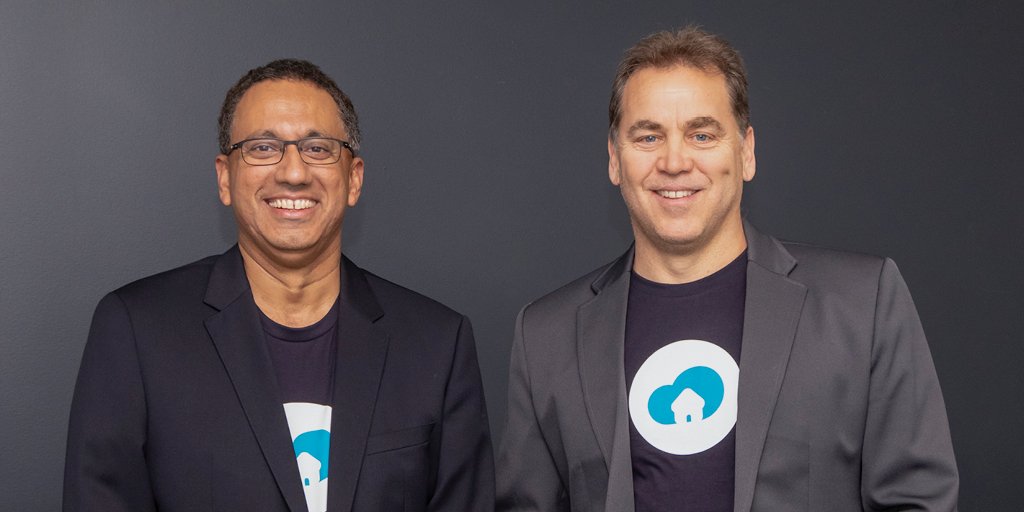
5 tips to take your business global from the founder of a $100 million Australian business
By Greg McKenna
Most founders get into business to build their idea into something great. For many that means great in their community, for others it means great in their state or nationally, but for some founders their sights are set beyond Australian shores and they want to expand globally.
One such example is SiteMinder, an Australian company which which has over 35,000 hotels in more than 160 countries around the world and recently hit the milestone of $100 million in recurring revenue. The company, founded by Mike Ford and Mike Rogers, established its first global office in the UK within four years.
Business Insider asked Mike Ford one of the SiteMinder’s founders and CEO how he built the business and took it to the globe.
Ford gave us five key tips he’d give Australian businesses who want to follow in SiteMinder’s footsteps.
Make sure going global right for you business?
Everyone wants to be part of a growing business. But it doesn’t matter if your company started out with a global vision or is ready to go global after achieving local success, everyone that works in leadership at your company needs to be ready. Ford told Business Insider Australia that being a global business “can increase complexity by orders of magnitude.”
Naturally, going global requires significant capital but aside from that Ford highlights the internal and external forces at play.
“As a start, your internal systems have to change and your software offering has to be localised,” Ford said. “Oftentimes, you need to offer support in multiple languages from multiple timezones, and your sales and marketing strategies can differ wildly based on the country and demographic you are targeting”.
Ford explained, “you will also come across local entrenched competition in these foreign markets, so not only are you a foreigner but you may need to deal with differentiating yourself”.
Find the right people to bring along on the journey
Matching the people to the skills you need and ensuring you have the right people at the right stages is key.
In the early days, Ford said he was “looking for intelligence, drive and hunger” along with a strong customer focus. As a result, he eschewed college degrees and instead hired people who weren’t necessarily experienced but “had the desire to craft our evolution, including our journey to going global”.
As the business grows, it will be time to bring in additional members to your leadership team, to make sure there is always a voice and advocate for your people and customers overseas, Ford said. That’s difficult to do when you have your head down running the business but it’s worth the investment.
There will also be points along the way where business managers will have to “have difficult conversations with long-time, loyal staff when they are no longer able to adapt to the growth and complexity,” according to Ford.
If you don’t, everyone will suffer.
Your offering needs to be both great locally and scalable for global markets
As obvious as it may be, your point of difference needs to be a “distinct offering,” Ford said.
Being successful in Australia is an achievement in itself and one to be celebrated. But Ford said companies need to understand “every other market you enter from here on in comes with its own set of cultures, languages, regulations, policies, taxes, education levels, buying behaviours, needs and, of course, competition”.
He said companies need to understand what is required in the new markets and prioritise those requirements. That’s going to require constant innovation and possibly diversification to provide the competitive edge a company needs internationally.
He said the fundamental factor is scalability of the company offering and business owners need to “create efficiencies, streamline your processes, modernise your software and foster greater internal collaboration” to ensure smooth scaling.
Saying no is often a good thing
Going global means more opportunities but managers need to learn to say no so they don’t become overwhelmed and lose focus on their goals, Ford said.
This means owners and managers need to be “absolutely clear about what you [stand for] and the things you are willing to let go. There are many opportunities that will seem attractive but won’t provide long-term benefits,” he said.
A laser focus on the business plan and driving it forward is a must. The point, Ford said, is not to do too much too soon, nor move into too many markets too soon. And when expanding, the best approach is to initially select the markets that look most like your home market in terms of target customer demographics, language and culture.
And finally, take care of your bank balance and yourself
Everything changes when you go global, Ford said. This includes your hours, your workload and your monetary outlays. That means, “you have to be very sharp with your forecasting, particularly around your cash requirements”.
This is especially the case because you can kill your company by overcommitting, he said.
But it’s Ford’s final piece of advice that is crucial for your personal and your company’s success:
“It’s really easy to get caught up in the frenzy of the global expansion, to the detriment of your own physical wellbeing,” he said. “Remember, your business needs you fighting fit for the long journey that is going global. So, above all, take care of yourself and, if need be, go a bit slower. The world will wait.”
